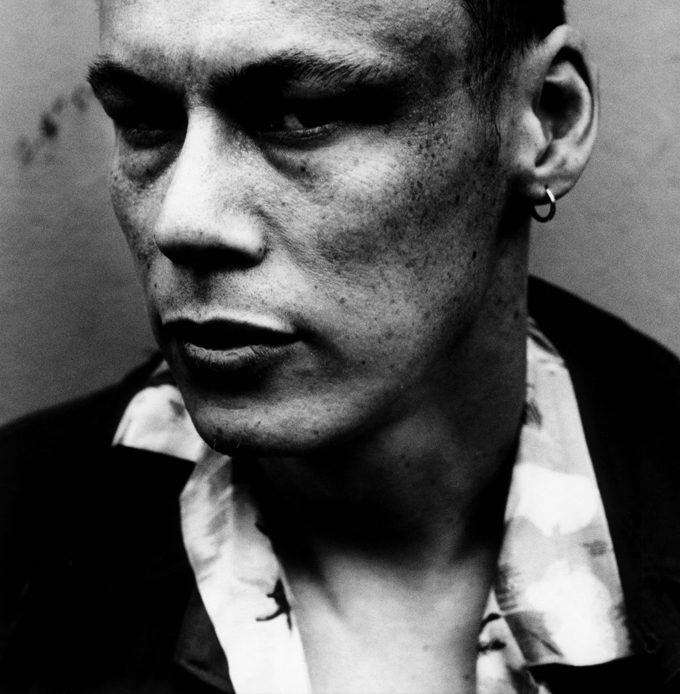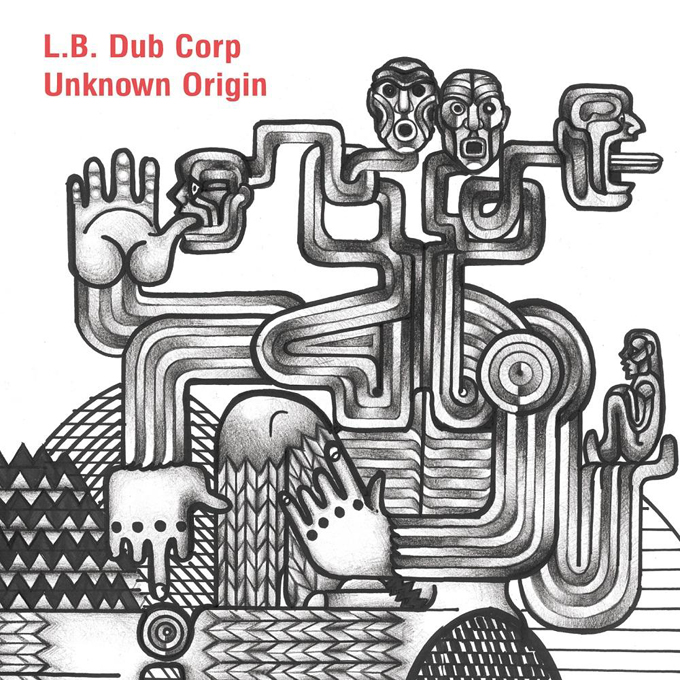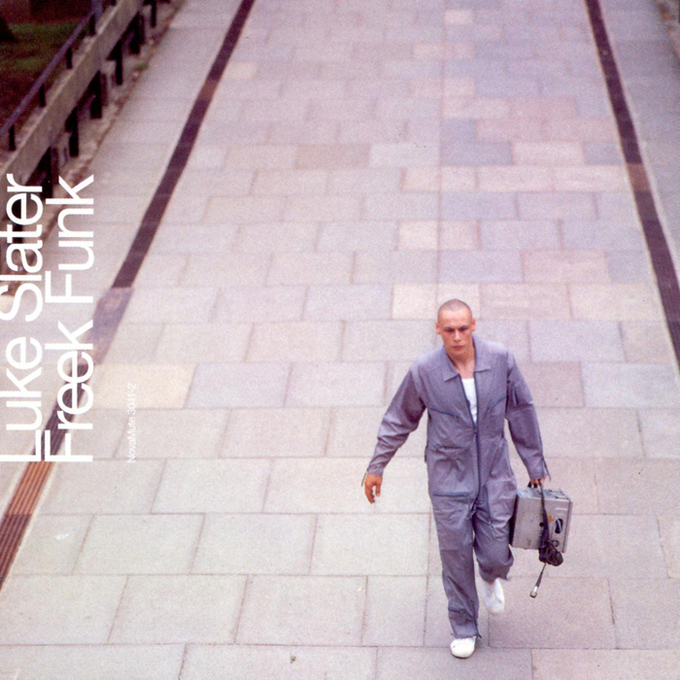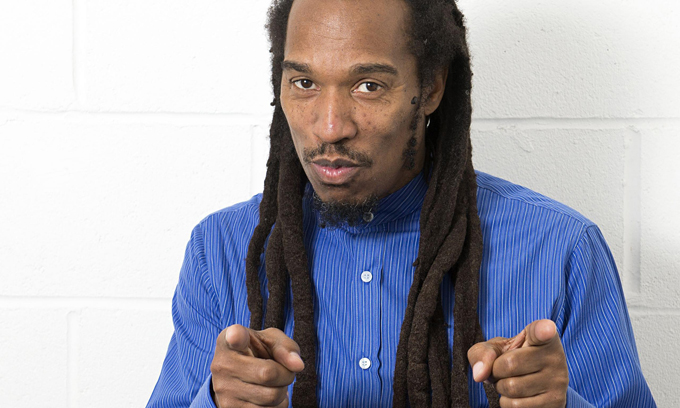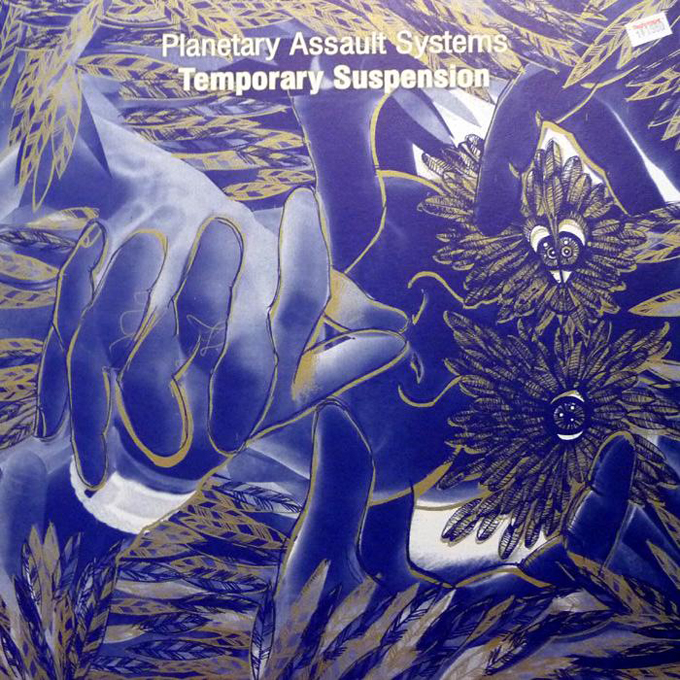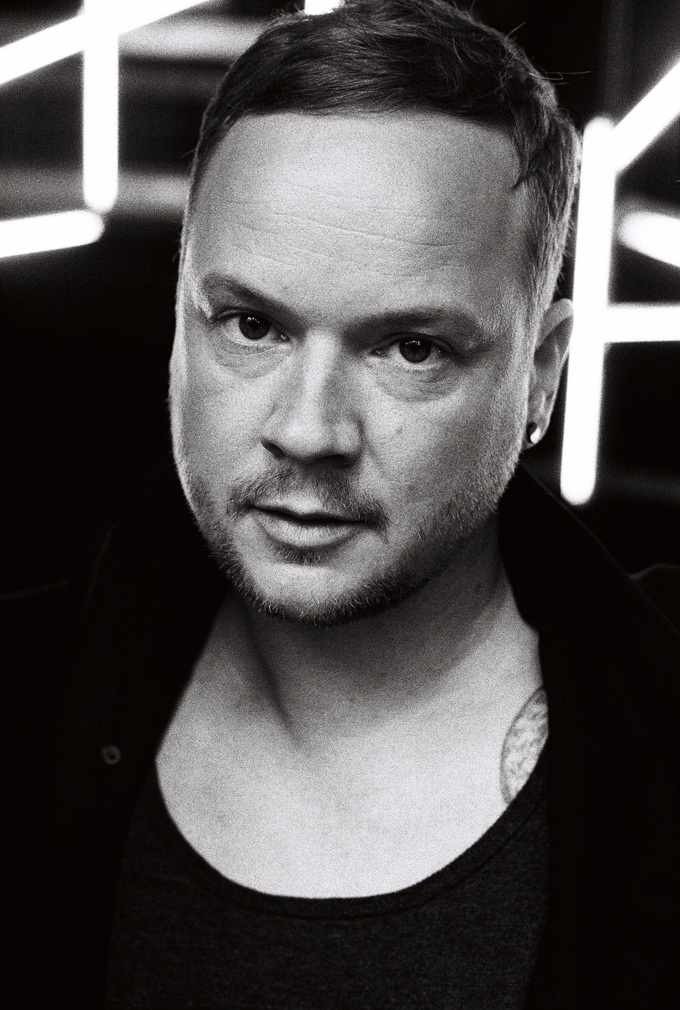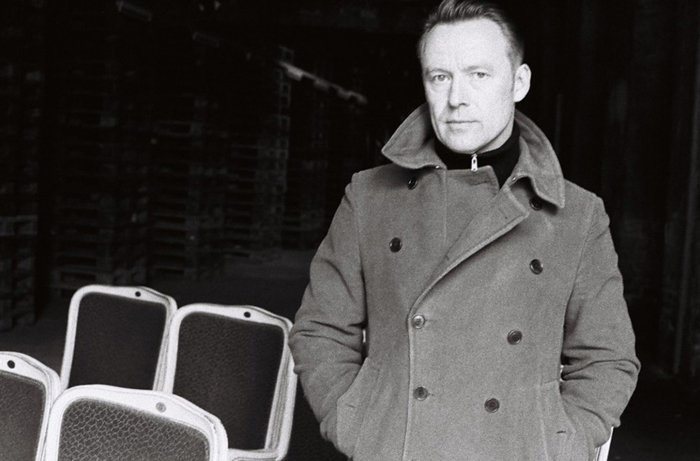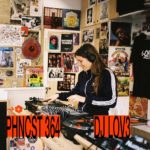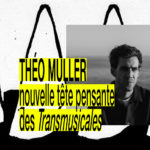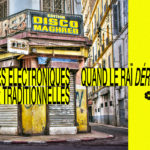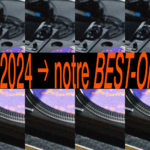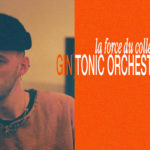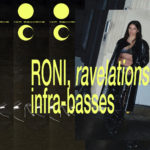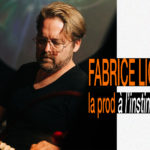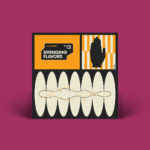Schizofrénic most probably is the first adjective coming to your mind when you discover for the first time the numerous Luke Slater’s aliases. Active since the early 80’s as a dj, the English artist worked in a large palette of styles, from the most festive house to the most brutal techno through ambient. Still today, Luke Slater play on several fronts with all his pseudonyms. Last November, he was releasing Unknown Origins via his side project L.B. Dub Corp which was nurtured between the infamous label from the electric central located near Ostbanhof, Ostgut Ton, and his own imprint Mote Evolver. Aside of this, Luke Slater continue to gather people with his project Planetary Assault System. During the Weather Festival he will perform in the Autumn tent. We exchanged by email with the producer with one of the most impressive résumé from the other side of the Channel, in order to know more about his carrier and his latest projects.
– Hello Mr Slater, for those who do not know you nor your work, could you present yourself?
Yes, I’m a man from nowhere, of some english, american and south korean origin born in the UK. I was brought up outside and to the south of London and have lived either in London or in the South of it my whole life, barring temporary excursions to other countries. What I did is either listened to music, played music, played records or played an instrument to escape the precarious ever threatening axe, that at this time when you’re in school, you are asked the question “What are you going to be when you grow up?” And I’m still doing that now, that’s what I did. What do I know,? Everything and nothing.
– From which channel did you fall into techno Music?
Originally through hip hop and electro… and then, by the end of the 80’s, at the early days of House Music, I got a residency at parties called Troll at Soundshaft (a small venue from Heaven), in the Charing Cross area of London ; there I was playing a lot of underground music from the US and UK mainly, Chicago, Detroit Acid and house music.
The club got quite a name, as it was a mixed gay club, very free with a new way of thinking. I’d often spot a lot of actors and TV types there, people like Leigh Bowery would make the occasional appearance. It was very much about the music though and was always enthusiastic about the difference in the approach of music, the mixing of records, the various walks of life and my love of all this. A sponge like music and rhythm absorption ability basically saved me from what my mum would have probably called The scrap heap.
– When you started LB Dub Corp in 2006 what was initially the aim of the alias amongst all the ones you created? What was the message?
Although Planetary Assault Systems has been probably my most loved pseudonym, around 2006 I wanted to start pulling in ideas from my original house history and my love of everything “Studio One”. At the time I was living just near London Bridge in a pretty trendy area but lacking in soul and mixed culture, which I find really important and right, so I started writing some tracks in the mini Spacestation, laptop and monitors, to try and capture the ideas, also driven by the lack of distraction in that area.
In one sense L.B. Dub Corp is locked in with some of the essence of where things started, I kind of took out that storage box I’ve been putting things over time. It’s very much about the groove again, about mixing it up and letting in some light diversity, but avoiding lounge music, which I’ve never really been into. It’s focused with liberal laws.
– If we look only to this moniker, you waited seven years to start this album. What was the click to release an LP under this moniker?
My relationship with Ostgut Ton records and the crew there was really quite a catalyst, they seemed very enthusiastic of the idea of the album and open to the idea around L.B. Dub Corp, but at the time I agreed to do it, we were touring P.A.S. Live quite intensively so I wasn’t sure I could give L.B. the time I wanted to. But I found out having enough time for things usually ends up not doing it till the last minute. As it turned out things flowed naturally in that way.
– In an interview you said that it was the album on which you spent the longest time. In which circumstances did you produce this LP?
I knew I wanted to find the personality of L.B. in this record. Being a DJ as well I gathered thousands of records, current and old ones, also I‘ve made many myself over the years, I still buy vinyl and get thousands of promos, so although it would have been easy to just knock out a few dubby grooves I felt that I had been covered so I had to wait really until it really hit me. It usually works that way, in this waiting time I got into some of my deeper traits, Buddhism, poetry, chants, meditation, stripping away at things until I had something raw and vulnerable to write. That’s really how it went, that’s what took the time. It’s a mind melting for all the right reasons. Sure, it’s only music but what’s the point unless it says something. I’ve never embraced mediocrity very well. Does anyone?
– How were you working initially when you began? What changed from an album such as Freek Funk from this last LP?
When I write something, it’s always been like the last bit of the process. What changes is your life? What’s going on around you? What you’ve learned and what you’ve discarded? You’ve got to soak that in. I’ve never been very productive noodling around and hoping something happens and a theme has usually formed a long way before which keeps on growing and the end product is the music as that’s my art. When I did Freek Funk back in the 90’s I wanted to write a book, a voyage, an album of music that didn’t exist or couldn’t be found but without straying away from the foundations of techno. I’m sure I said some other things at the time, but that bit still holds true. This way of working seems to work for me. I like developing ideas and hope others get into it.
– “Unknowns Origin” deals with your three origins (English, American & Korean) but also with an idea of multiculturalism? Was it easy to reflect your message in your album?
I think I am celebrating diversity, not just in writing but also probably in myself and using the medium of music and producing to link it together. It’s not political, but maybe a chance to broaden a message through music.
– You worked with the Rastafarian poets Benjamin Zephaniah who is the only one artist who publicly refused to be decorated by the Queen because of the centuries of slavery and Barbary. How did you thought to involve his work in this LP?
Well I can’t of course speak for Benjamin on the Honour refusal, but I’m personally not a supporter of the Honours’ system, I think it’s pretty corrupt. I’ve always loved Benjamin’s poetry because the way he writes gives me a feeling he’s tackling a certain difficult issue then throwing in humour as an answer just when you think its getting too renegade. That strikes a chord in me and I think there’s a point everything needs some humour of some kind.
– The only featuring except him is Function. With your birth name Luke Slater or with your other Alias P.A.S. you did not made featurings on your albums, why did you choose to make some on this one?
I think L.B. Dub Corp can always be around collaboration whereas P.A.S. is really not at all.
– You did not release music as Luke Slater since 2006, do you think that aliases allow you to take hindsight and avoid you to repeat patterns?
No, I don’t think I’ve ever purposely avoided anything in that way. I think things have a natural flow to them.
– You created a lot of monikers, but there are not so many you developed as much as P.A.S 7th Plain or L.B Dubcorp. To you what makes valuable to develop such projects? What could be a reason to stop to work on such projects too?
I like working on ideas and visions with reasons behind it. Very much the ethos behind P.A.S. and that still carries through to the latter P.A.S. too. I like things with purpose behind them. There’s no point in me writing anything unless I have a definite reason and those things change over time. That I think is the beauty of it all.
– Do you think you’re more mature than in your previous LP? How do you think your vision of production has evolved on the long run?
Maturity is both a crutch and a blessing I think. Some of the greatest music over decades is not always well produced in terms of traditional teachings of music production. I’m always aware of that. People don’t seem to like a track because it’s well produced, they like it because something in it touches them in some way.
– How did you perceived the reaction of your fan base after “Alright On Top”? It seems that this album could represent at that time a good door to a more mainstream sphere. At your level of celebrity, success, popularity or whatever… what made you stay in the underground?
Yes, I remember touring the album and you had this split situation where I was half in and half out of the mainstream pop world. I was doing some gigs where techno fans were pretty pissed off and then you had people outside that really loved it. I didn’t intentionally do it to piss people off, for me it still holds up for what it is and in later years the idea of electronic music and a soul voice has come to the mainstream. Albeit not around techno. It was very interesting treading the other side. My outlook has always been that I want as many people to hear my music, I’ve never said different.
After that album though I didn’t write for a few years. A lot changed in my personal life, most of it in fact, and I had to go with that. There was a huge shift at that time too in the music industry, which made a lot of old ways defunct. Times were changing. You gotta see that, you gotta allow things to deconstruct when they need to and open your eyes to it. Let that river carry you. Don’t hold on.
– Ostgut Ton played a key role in your come back. You were the first non-german artists to release a full-length album on the imprint. How did you make the connection with the label?
I first played a live set for Ostgut back in 1997 I think, before Berghain when they were Ostgut. Since then we’ve always had a creative attachment over things. It seemed a very right thing to do to restart P.A.S. album wise on Ostgut, especially in relation to Berghain where I was playing.
– You came back after 5 years of break with Temporary Suspension, how do you think things have changed in this industry during this span of time? Did your vision of the industry changed after your come back? Why did you choose P.A.S. moniker to come back?
Yeah sure it all changed. I see the 00’s as a kind of pass through decade where many things changed all over. It’s like the world tilted on its axis and threw its toys everywhere. When I started Mote-Evolver in 2006 or 2007 I felt the music industry had fallen apart and everyone was fighting in the pits trying to find how to make it work for them. I decided to start releasing new music on my own label in the same way the underground did back in 1994 but with the emphasis on a piece of music being good enough to release. I put the quality control marker very high for myself and decided to road test everything before thinking about releasing it. I think that’s the key to how P.A.S. re-started. Coupled with a huge demand and love for the explorers.
– What do you think about the reactionary sentence “ It was better before…”, do you think artists now think about what to do and how to do it more than in the 90’s? How your creative process has evolved with time?
Rose tinted glasses but it’s natural to see the past as more secure, you can attach your hooks where it didn’t crumble.
– You’re most of the time playing in clubs in Paris. Did you already played in French electronic music festival previously?
Yes over the years many French festivals. One that sticks in the mind was Printemps de Bourges way back.
– What are you expecting from this gig?
Well it’s going to be great to be playing at Weather Festival, huge line up and I’m looking forward to playing for the fantastic Paris crowd.
– A last word?
Thanks for the support, looking forward to seeing you there!

